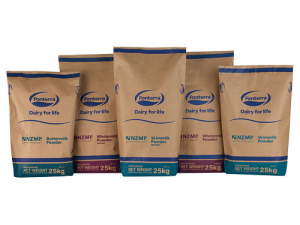Welcome to a new year. 2016 was a turbulent year to say the least.
Globally there was political turbulence, much of it surprising and shocking to the pundits, if not to the public. Partly associated with this turbulence was heightened financial and economic volatility and concerns about the apparent rise of nationalism, populism and protectionism.
In New Zealand the domestic economy seemed to shrug off these worries. Net migration and tourism continued to set records, GDP and employment grew strongly, business confidence was robust and the Government posted a healthy surplus. However, we also had our own political surprise with John Key’s resignation and there was the Hurunui/Kaikoura earthquake which caused great damage and disruption.
2016 is over and many will be glad to see the back of it, but 2017 should prove no less challenging. Donald Trump has been inaugurated as US president and Britain and the EU will begin Brexit negotiation once Article 50 is finally invoked.
There will be elections in France, Germany and the Netherlands which will test the strength of Eurosceptic parties. China and Russia will continue to display their recent assertiveness.
At home we will have our own election, which will no doubt be closely fought. The economy is relatively strong and most people think NZ is heading in the right direction.
However, inequality, immigration, housing and law and order will be key battlegrounds so the election is not a foregone conclusion. The relatively strong fiscal position will likely see plenty of promises to spend more and/or cut taxes.
Economic news was typically fairly quiet over the holiday period but there were a couple of items worth remarking on.
Dairy prices dropped in the year’s first Global Dairy Trade auction, held last week. The GDT price index was down 3.9%, with whole milk powder, which makes up nearly half the trade by volume, down 7.7%.
Other commodities were mixed, with skim milk powder up 2.3% and butter up 0.5%. The average winning price was US$3463 and 22,396 tonnes were sold.
Last week’s 3.9% fall followed a 0.5% fall in 2016’s last auction held on December 20. Nevertheless, the GDT price index remains 31.9% higher than at the same time last year and most economists still expect the season to deliver a payout in excess of $6/kgMS.
The broadly positive picture for dairy was confirmed by the ANZ commodity price index which rose 0.7% in December. The December rise was the eighth in a row, up 19% for the year.
When converted into NZ dollars, the NZD commodity price index was up 2.0%. This was the fifth month-on-month rise in a row and the fourth monthly gain above 2%. During December the NZ dollar depreciated against the US dollar and UK pound but was up against other currencies.
Dairy was the star with prices up 3.9% in December, thanks to tight global milk supplies and improved Chinese import demand. However, non-dairy prices fell 1.9%, with only three of the 12 non-dairy commodities in the index rising in December.
The falls were centred mainly on the meat and fibre group. The largest fall was a 6.2% drop in wool prices, making the 2016-17 season a tough one so far (prices down 26% annually). Beef prices also fell 5.5% and lamb prices were down 2.4%.
These results are consistent with surveys showing improved farmer confidence overall but it was ‘two-speed’: dairy farmers feel better about the economy and their own fortunes (albeit off a low base) and sheep and beef farmers feel worse. This doesn’t seem likely to have changed as we enter the new year.
• Nick Clark is Federated Farmers general manager policy.


















